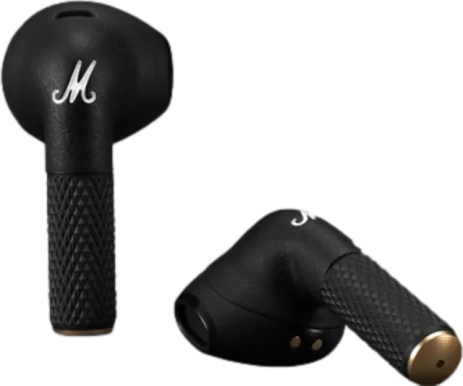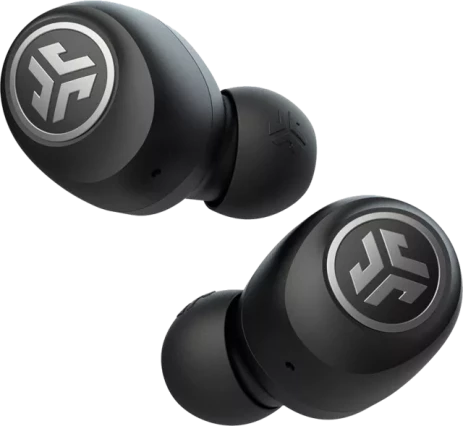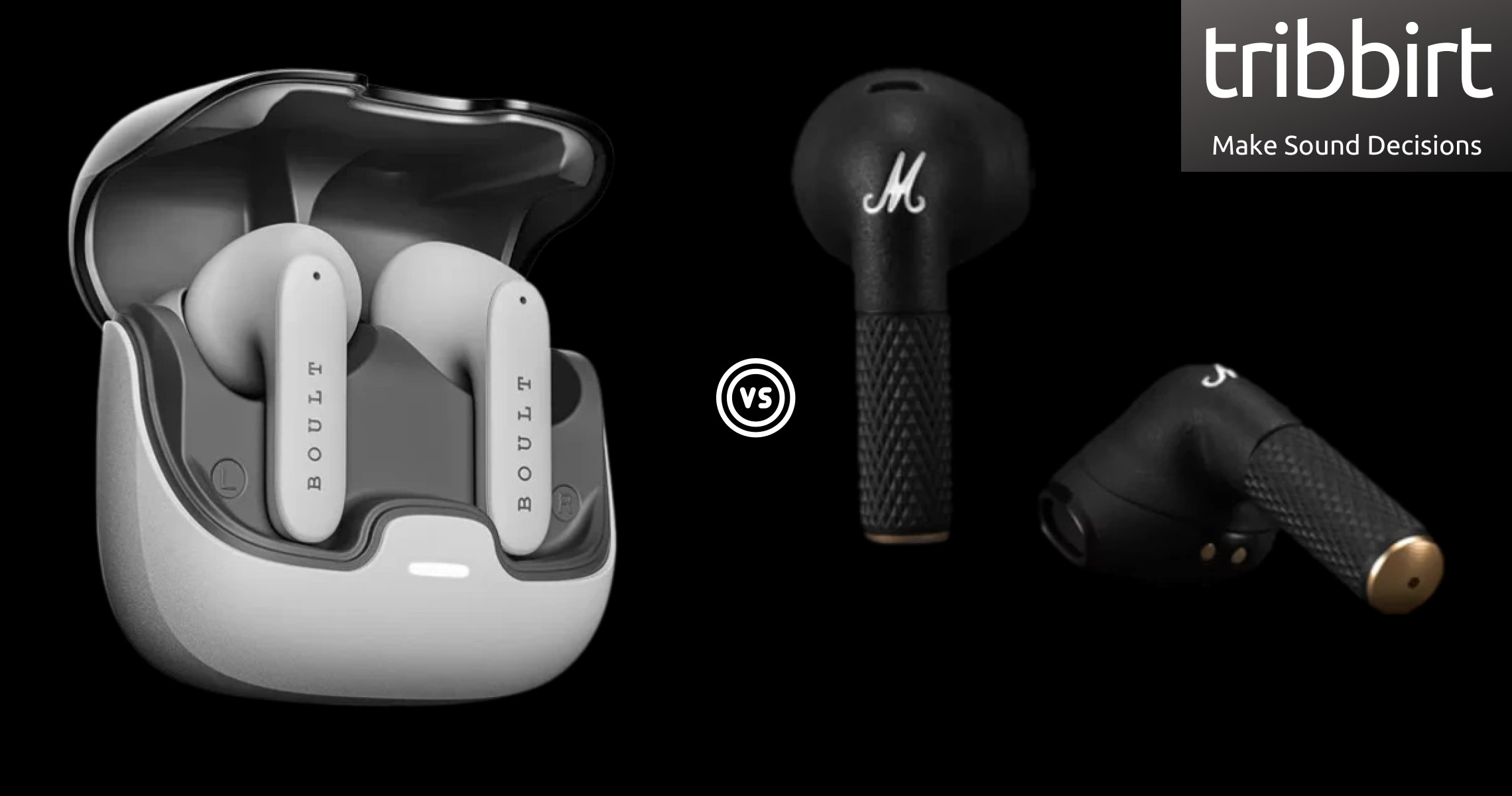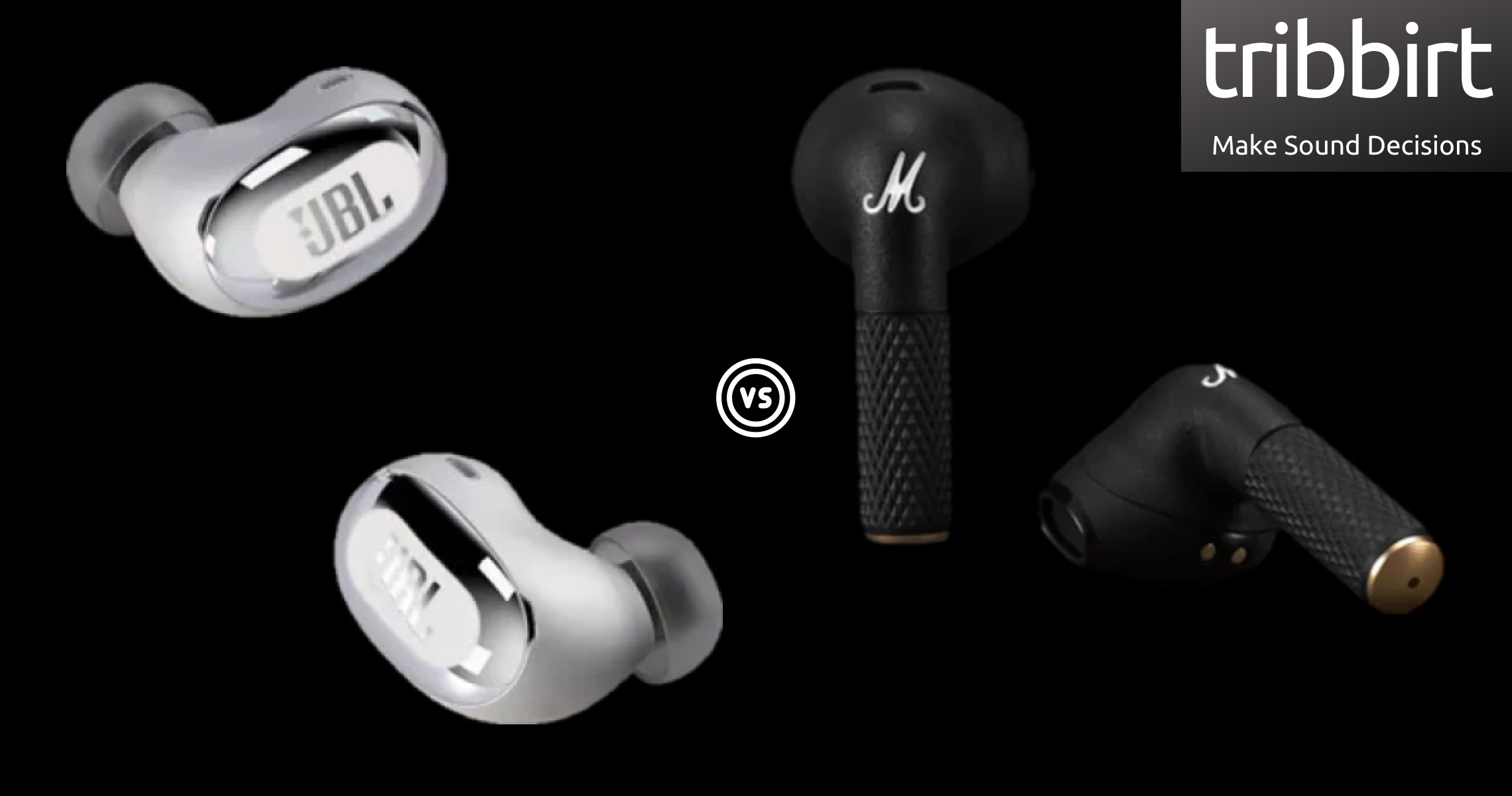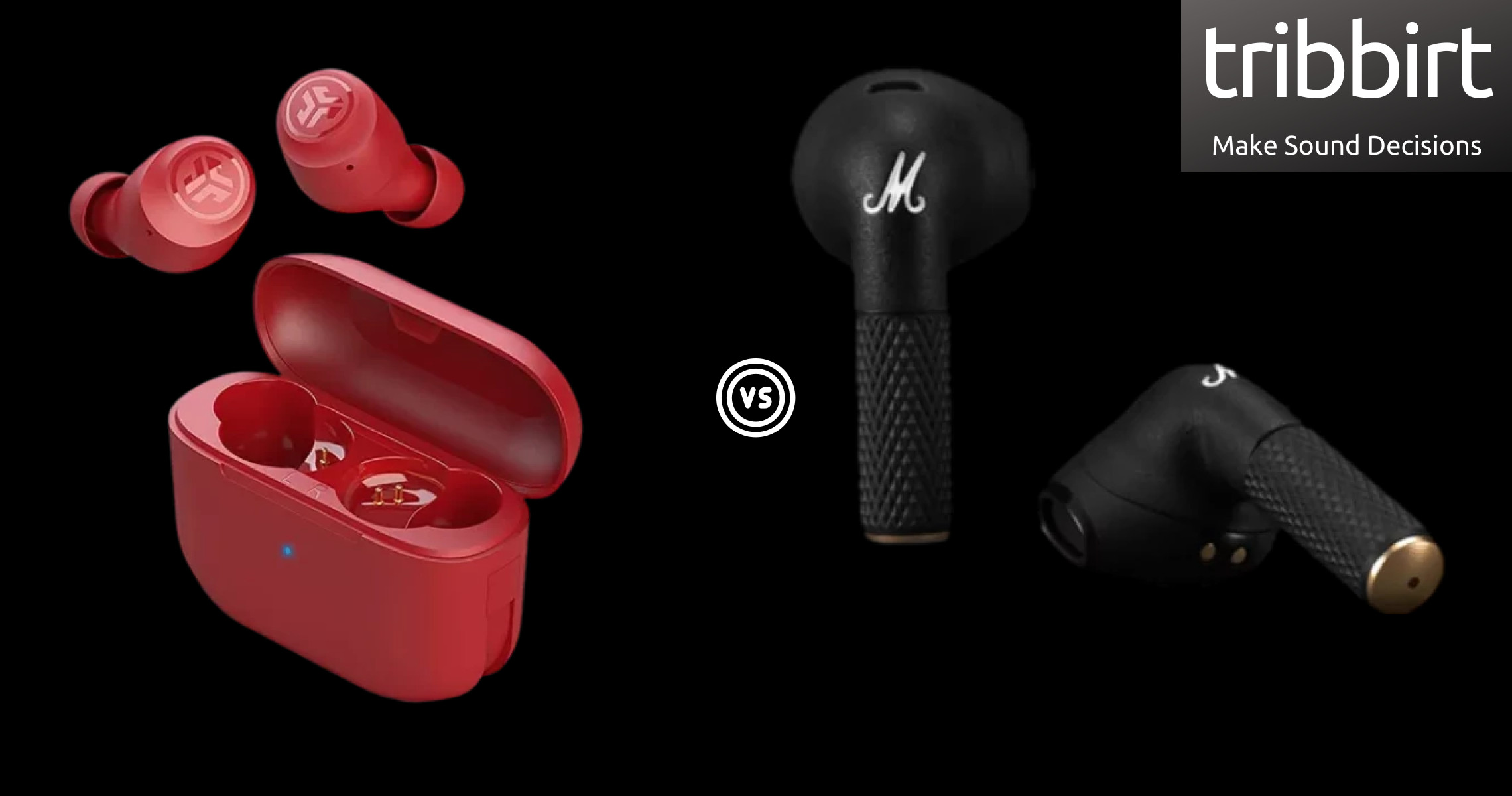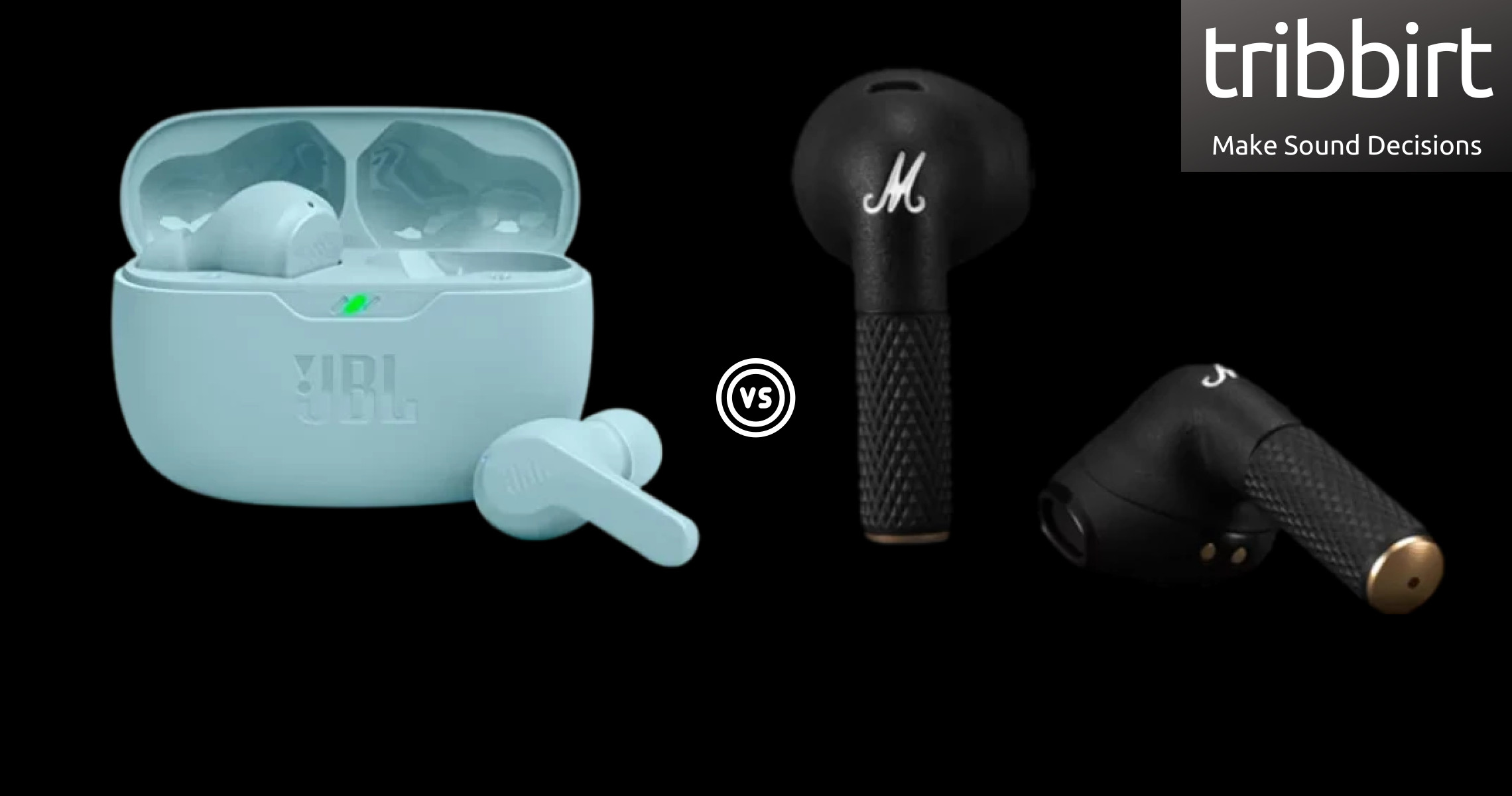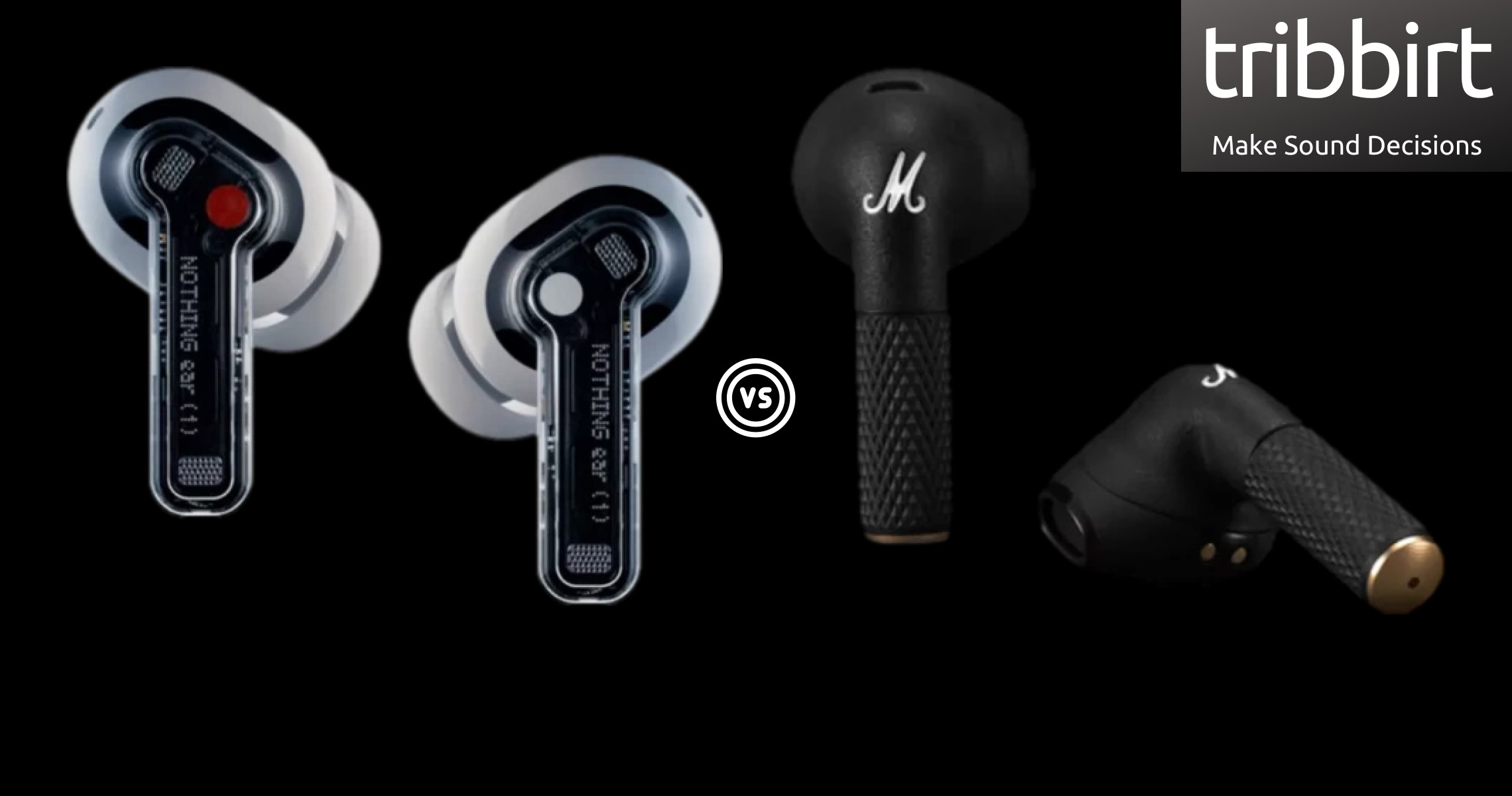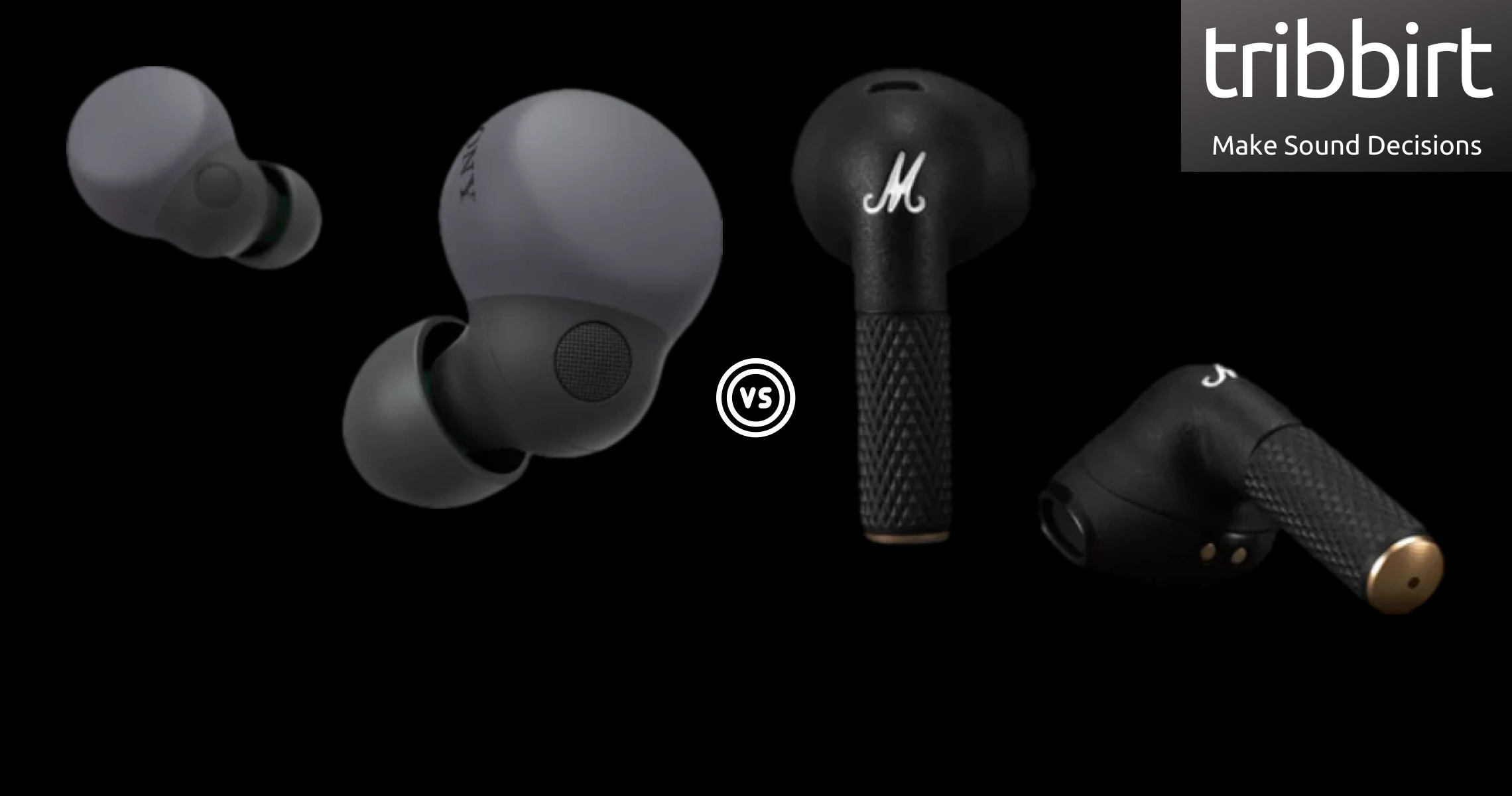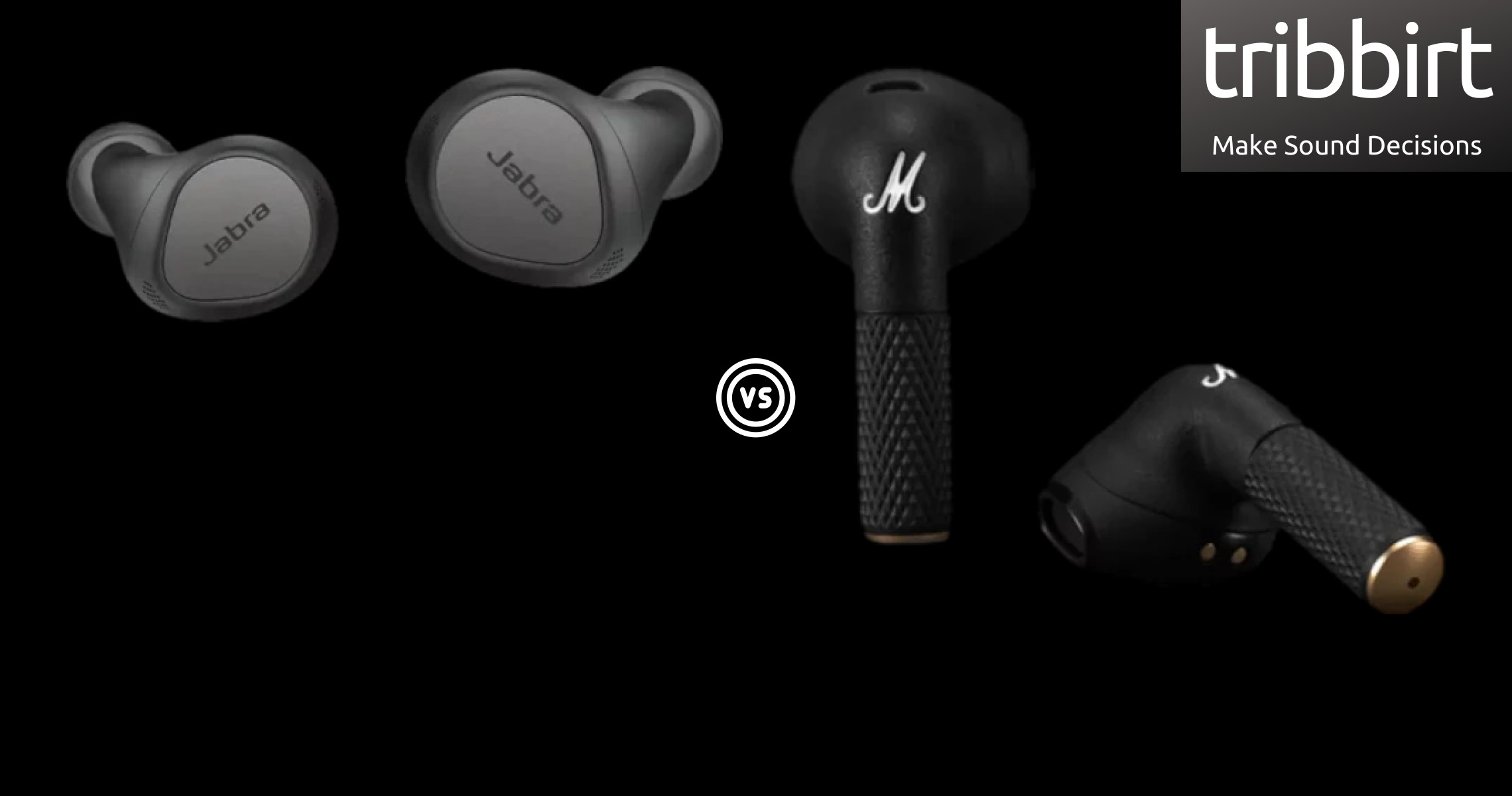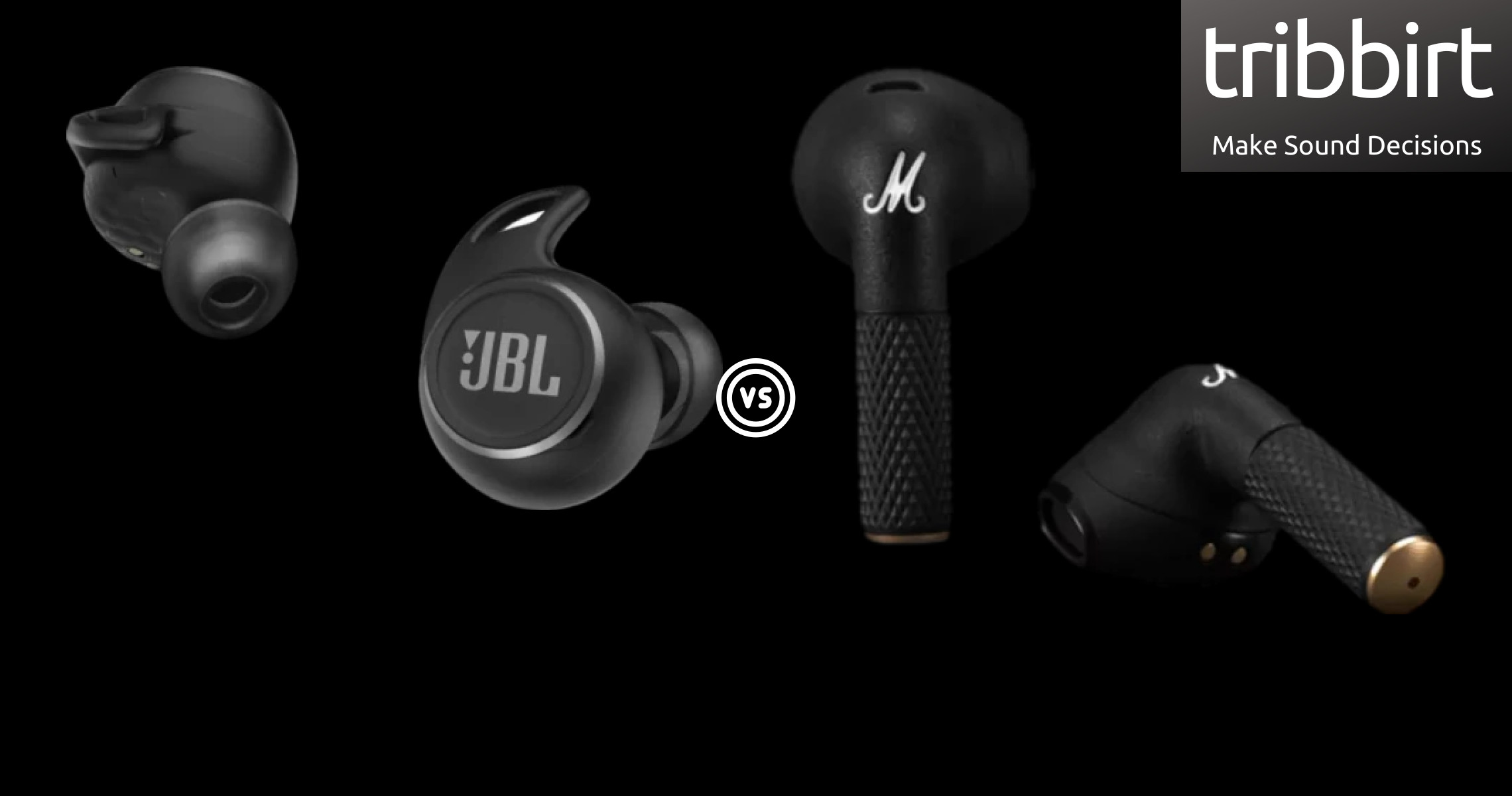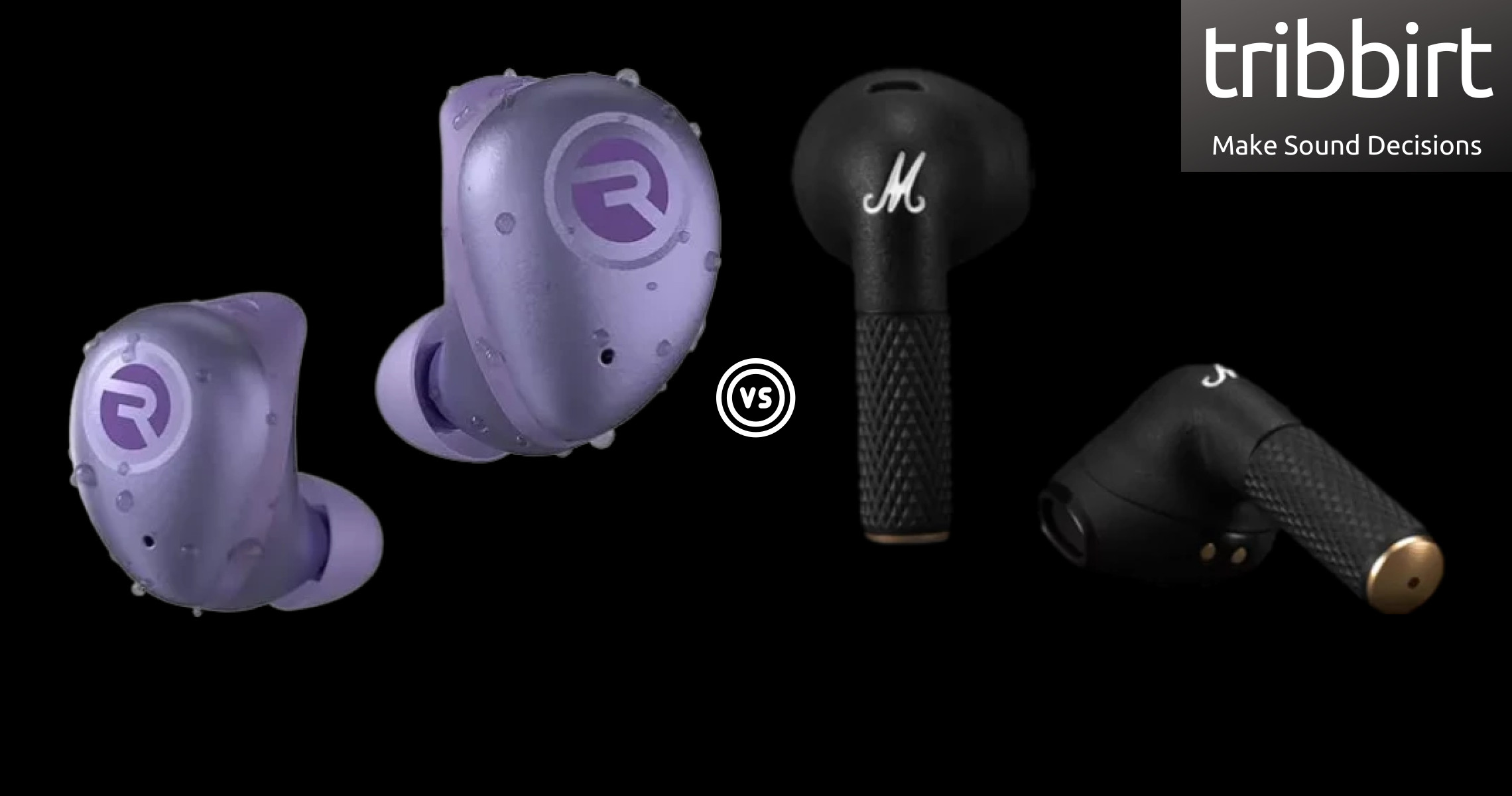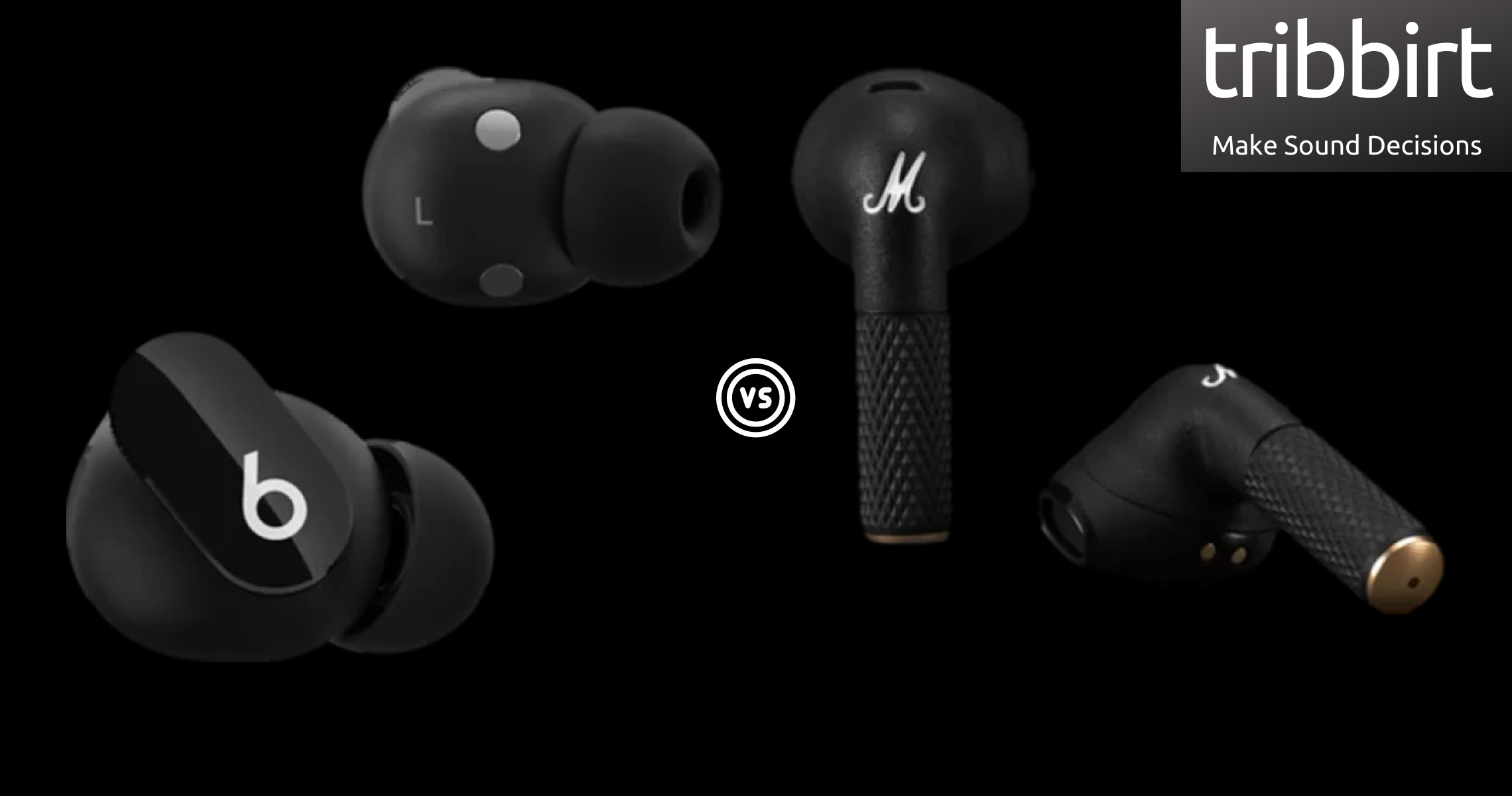IP ratings refer to the level of protection offered by a casing, against solids and water. The letters 'IP' are followed by two values The first value of the IP rating refers to protection against solids such as dust, followed by the one that refers to resistance against liquids (sweat).
Scoring IPX4, the Marshall Minor III's rating is read as, the first number of X denotes that no data available to specify a protection rating, and of liquids that they can withstand low pressure spray similar to that of a shower head when tilted at 180° for 10 minutes. Compared to the Marshall Minor III, JLab Go Air have a rating of IP44 meaning that
they are protected against objects greater than 1.0mm such as wire
and that of liquids is that,
they both have the same rating against liquids
The Marshall Minor III have a weight of 8g . We consider a lower weight best because lighter devices are easier to move with.
The JLab Go Air, at 10g
weigh more than the Marshall Minor III with a difference of 2g
True wireless devices have no wires connecting any part of the device together, Marshall Minor III are true wireless for this case since they don't have wires. This is a major distinction as some wireless earbuds have cables linking the pair of earbuds .
JLab Go Air also is true wireless because it doesn't have wires connecting the two earbuds together. Marshall Minor III have sweat resistance
JLab Go Air's resistance to sweat makes both devices ideal for use during long-distance running, marathons, cardio sweat workouts , etc
Marshall Minor III have stereo speakers, what this means is that Marshall Minor III's speakers deliver sound from independent channels on both left and right sides, this creates a richer sound and a better listening experience.
Both JLab Go Air and Marshall Minor III have stereo speakers
Marshall Minor III driver unit is 12mm in diameter, the bigger the unit the more powerful, therefor producing better bass. The driver unit is the component that produces sound in the device, the unit size corellates with the sound made by the device. JLab Go Air driver unit is 8mm in diameter,
which means that they have a smaller driver unit than that of Marshall Minor III by 4mm
, as many tend to believe that driver units of a bigger size automatically produce better sound quality.
However, large drivers usually have difficulty producing high frequencies so yes, larger drivers can generate louder sound, but this does not indicate that they produce better quality sound. Marshall Minor III's lowest frequency is at 20Hz, low-frequency response measures if and how well a particular audio component generates low audible frequencies and if it makes any changes to the signal while at it. JLab Go Air's lowest frequency is at 20Hz, this implies that
both devices can make sound with equal bass
Marshall Minor III's highest frequency is at 20,000Hz, high-frequency response indicates how well an audio device generates high recognizable frequencies and if it adjustments to the signal on its way through.
JLab Go Air's highest frequency is at 20,000Hz, this implies that
both devices produce equal treble
Marshall Minor III's battery life is 5 hours, these last less than 5 hours of listening which is considered average for a single charge. A device's battery life is commonly given by the manufacturer, and with longer battery life, you get to use it for longer and have to charge the device less often. JLab Go Air's battery life is
equal to that of the Marshall Minor III
. Every time you recharge your earbuds, they get a little less playing time.
The effect is not noticeable at first, but over time, your wireless earbuds will have shorter listening time. The battery life of the charging case is given by the manufacturer, and the Marshall Minor III's case has a full charge of 25 hours. A charging case with a longer battery life enables you to recharge your earbuds on the go multiple times before having to recharge the case itself.
JLab Go Air's charging case has a battery life of 15 hours,
less than that of Marshall Minor III by 10 hours
It requires 1.5 hours to fully charge the Marshall Minor III's battery. It is recommended to charge fully the battery before using the earbuds when they have been in storage for long periods. JLab Go Air takes 1.5 hours to fully charge the battery,
equal to that of the Marshall Minor III
Marshall Minor III, the device supports wireless charging.
To charge the earbuds, you simply place down on a compatible charging pad. Marshall Minor III have a battery level indicator, an indicator alerts you when the earbuds has a low battery. Its lights show the charging state of your device and case.
JLab Go Air too have a battery level indicator, charging indicators enable you determine the charging state of your earbuds, whether fully charged, or having a low battery. Marshall Minor III use USB TYPE-C, an industry-standard connector for transmitting both data and power in a single cable. The Marshall Minor III have Bluetooth version of 5.2, Bluetooth is a wireless technology standard that enables data transfers between devices placed in close proximity, using short-wavelength, ultra-high frequency radio waves.
JLab Go Air has a Bluetooth version of 5,
older than that of Marshall Minor III
. Newer versions provide faster data transfers. Marshall Minor III have a 10meters distance connecting via Bluetooth. JLab Go Air have a maximum range of 10meters,
equal to that of the Marshall Minor III
The Marshall Minor III support APTX HD, an audio codec for Bluetooth devices that are developed by Qualcomm.
It supports high-quality 24-bit audio (at a bit rate of 576kbps).
Marshall Minor III have 2 microphones. While the JLab Go Air microphones are 2,
equal to that of the Marshall Minor III
. More microphones record better sound quality and enable the device to filter out background sounds. The Marshall Minor III have in/on-ear detection, the sensors in the device can detect when they are removed from your ears so that the music is paused.
Marshall Minor III support fast charging. Commonly, technologies like Qualcomm’s Quick Charge, are used to lower the time it takes to fully charge a device. The Marshall Minor III have a mute function, they have the option to mute/unmute a conversation directly from the earbuds.
With the Marshall Minor III, so you can access the volume control, pause, play, mute, etc whichever functions are supported on the device. The JLab Go Air too have a control panel on them. The Marshall Minor III support voice prompts.
With voice prompts, you receive information via audio messages, say if there is an issue with the connection. JLab Go Air also support voice prompts .i.e the device notifies you if the battery is low, and you need to recharge them. The Marshall Minor III come with their own special pouch.
Carrying earbuds without a case, or placing them in your bag without a cover can easily damage them.
